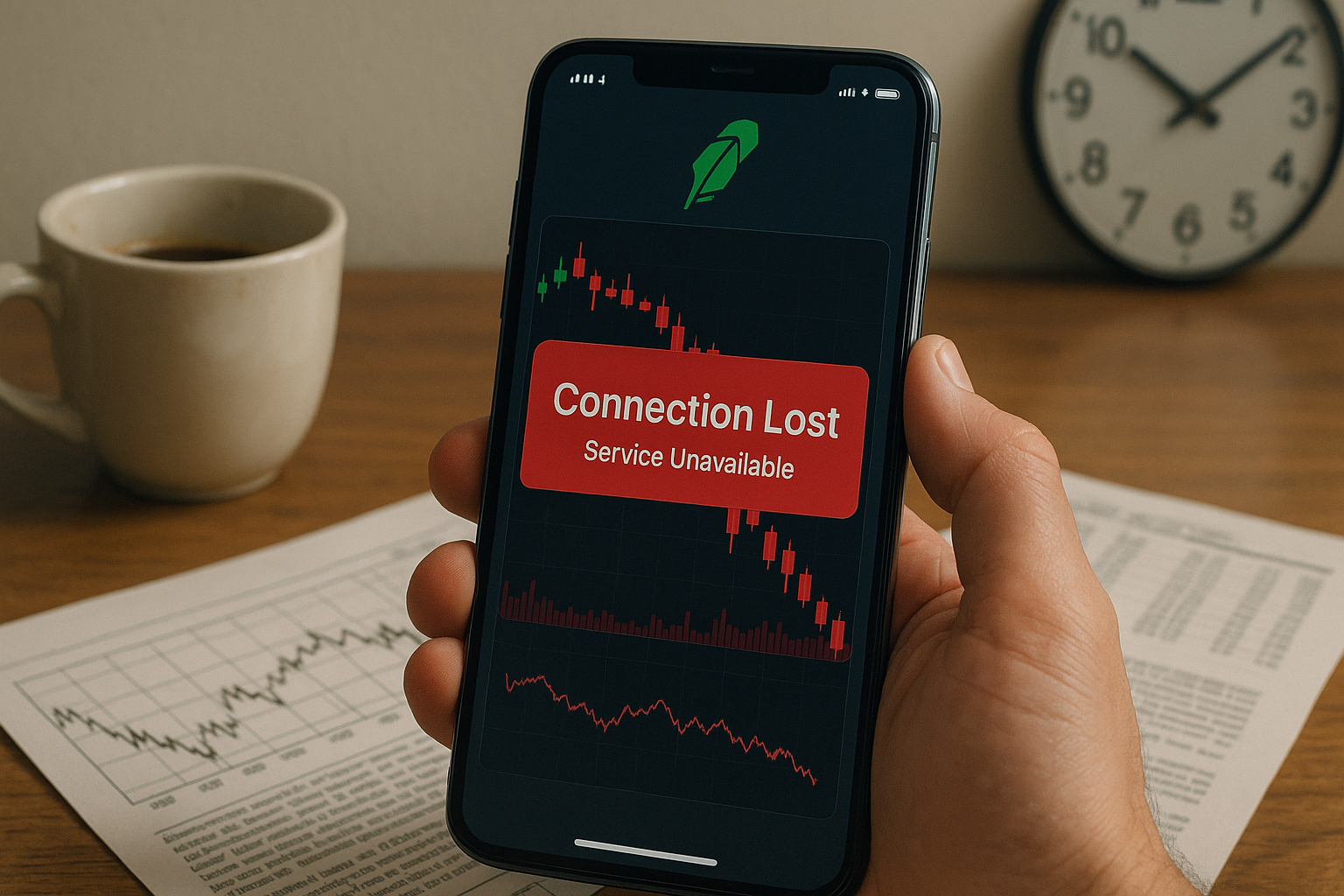Robinhood crashed. Again.
At this point, the trading app's outages are becoming as predictable as market volatility itself—which is precisely when these failures seem to happen.
The latest service disruption left thousands of users locked out of their accounts during active trading hours today, unable to do anything but watch helplessly as their investments fluctuated beyond their control. For a company whose entire existence is predicated on democratizing finance, there's something darkly ironic about leaving your users powerless exactly when they need access most.
I've been watching Robinhood's technical struggles since their early days, and the pattern remains frustratingly consistent. The company built its reputation on dismantling barriers to entry in the financial markets. No commissions! Confetti animations! An interface so slick you might forget you're dealing with actual money! But they've repeatedly stumbled on what should be the most fundamental aspect of a brokerage service—you know, actually letting people trade.
There's this concept in business called the "reliability premium." Basically, customers will pay more for services they can depend on. Think about it—airlines charge more for flights with better on-time records. People choose premium brands partly because they trust them not to fail.
But Robinhood? They've flipped this model completely upside down.
Their unspoken value proposition seems to be: "We'll give you free trades, but sometimes (particularly when markets get crazy and you really need to trade), you just won't be able to access your account at all." Bold strategy, indeed.
The contradiction at the heart of Robinhood becomes painfully obvious during these outages. Their mission statement talks a big game about "democratizing finance for all," yet what's happening creates the exact opposite effect. While Robinhood users stare helplessly at error messages, the institutional players with their fancy Bloomberg terminals and direct market access continue operating without interruption.
(I spoke with three users today who described watching their options positions deteriorate while being unable to close them out—a special kind of financial torture if there ever was one.)
What we're seeing, frankly, is the hidden cost of "free."
When a service doesn't charge you directly, you're paying somehow. Sometimes with your data. Sometimes through less visible mechanisms like payment for order flow (Robinhood's bread and butter). And sometimes... well, sometimes you're paying with reliability.
Look, the company made a fundamental trade-off between cost and infrastructure resilience. Today—just like all those other times—users are footing that bill.
What's fascinating to me is how this keeps happening, yet people keep signing up. There's a principle in behavioral economics that explains this: we humans systematically undervalue the risk of low-probability, high-impact events. When choosing where to put our money, most of us focus on the shiny parts—zero commissions, pretty interfaces—rather than boring stuff like "Will this system work during a market crash?"
Until, of course, it doesn't.
This creates a weird incentive structure. Robinhood is economically motivated to build just enough infrastructure to handle normal days, but not the occasional volume spikes that come with market chaos. Why? Because upgrading systems to handle once-a-quarter trading surges is expensive, and—here's the kicker—outages haven't killed their growth.
Not yet, anyway.
Meanwhile, traditional brokerages must be watching with a mixture of schadenfreude and strategic curiosity. They've been forced to eliminate commissions to compete with Robinhood, but maybe... just maybe... reliability is where they can now differentiate themselves. "We're all free now—but our systems actually work when markets go haywire" isn't the sexiest slogan, but after enough Robinhood outages, it might resonate.
For users caught in today's mess, options are limited. Tweet angrily. File complaints with FINRA. Accept that this is the price of free trading with confetti. Or switch brokers, though we all know how powerful inertia can be with financial services.
Robinhood will undoubtedly issue another carefully-worded apology, maybe offer some token compensation, and promise to do better next time. They always do.
But until outages meaningfully impact their bottom line—until people start leaving in droves—we're gonna see this movie again. And again.
The lesson? Sometimes in finance, as in life, you really do get what you pay for. And "free" can turn out to be surprisingly expensive.
